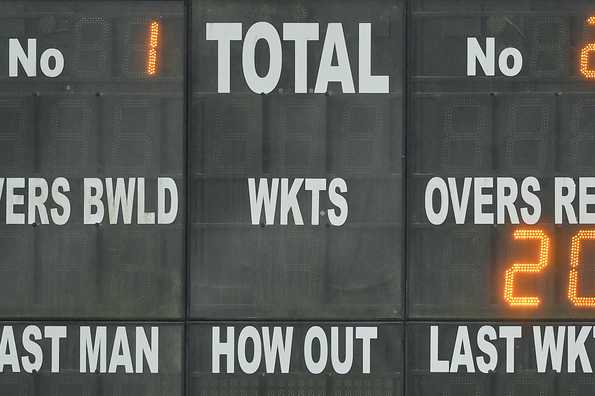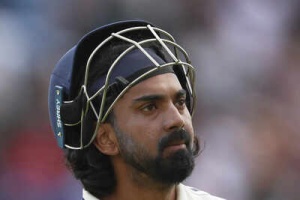The International Cricket Council (ICC) has announced adjustments to the Playing Conditions for Twenty20 Internationals, primarily affecting the calculation of PowerPlay overs. The key change involves rounding the PowerPlay length to the nearest ball, rather than the nearest over.

Under existing regulations, the initial six overs constitute the PowerPlay, representing approximately 30% of a standard 20-over innings. However, when innings are shortened, rounding to the nearest over can significantly alter this proportion.
The new rules stipulate that when the batting team's overs are reduced, the number of PowerPlay overs will be adjusted according to the following table, applicable to both the first and second innings:
| Match reduced (overs) | Powerplay overs |
|---|---|
| 5 | 1.3 |
| 6 | 1.5 |
| 7 | 2.1 |
| 8 | 2.2 |
| 9 | 2.4 |
| 10 | 3 |
| 11 | 3.2 |
| 12 | 3.4 |
| 13 | 3.5 |
| 14 | 4.1 |
| 15 | 4.3 |
| 16 | 4.5 |
| 17 | 5.1 |
| 18 | 5.2 |
| 19 | 5.4 |
Previously, an 8-over innings would have two PowerPlay overs, while a 9-over innings would have three. The revised table adjusts these to 2.2 and 2.4 overs respectively, maintaining a proportion closer to 30%.
The ICC stated that this system, already in use in England's T20 Blast, has proven effective. "In the 8 over example above, the umpire will make the signal after 2 balls of the 3rd over, at which point three further fielders are able to drop back from within the circle."
The ICC had previously advised that concussion replacements in Men's T20I matches must be identified and named before the match commences. This levels the playing field by mitigating the home team's advantage of a larger player pool. The standard procedure is to nominate the following replacements to the match referee:
Acknowledging the challenges faced by Associate Member teams, the ICC will accommodate situations where identifying five specific concussion replacement players is difficult, especially for teams playing overseas with limited available players.
Teams may nominate a batter as a replacement wicketkeeper. However, the referee retains the discretion to mandate that the nominated batter must keep wicket if used as the replacement, or to allow another player from the starting XI to do so. The primary goal is a like-for-like replacement, preventing teams from gaining an unfair advantage.
The same player can be nominated for multiple categories. However, if an all-rounder replaces a batter, the referee may restrict them from bowling, aligning with the principle of a like-for-like replacement. There is no requirement for the concussion replacement to be restricted to the playing squad; teams can nominate any eligible player.
The overarching principle remains a like-for-like replacement, with the referee ultimately determining the suitability of a replacement based on the specific circumstances.
Under exceptional circumstances, the match referee may consider a replacement player outside of the nominated list.
The ICC has also addressed the issue of using saliva on the ball.
"If any substance, including saliva, is used to change the condition of the ball, it is mandatory for the ball to be replaced. Circumstances could arise whereby a team wants to change the ball and deliberately applies saliva to get it replaced. This new clause can prevent the ball from being automatically changed under these circumstances."
These changes currently apply only to Men's playing conditions. Women's playing conditions will be updated in October. The new playing conditions will take effect from July 10, 2025.
Newer articles
Older articles
 Vijay Officially Named TVK's Chief Minister Hopeful for Tamil Nadu's 2026 Election
Vijay Officially Named TVK's Chief Minister Hopeful for Tamil Nadu's 2026 Election
 RJ Mahvash Prioritizes Work Over Buzz, Addresses Link-Up Speculation
RJ Mahvash Prioritizes Work Over Buzz, Addresses Link-Up Speculation
 Which Chair Would You Choose? This Personality Test Reveals Surprising Insights
Which Chair Would You Choose? This Personality Test Reveals Surprising Insights
 UNESCO's World Heritage Wonders: Unveiling 10 Iconic Sites, From Petra to the Pyramids
UNESCO's World Heritage Wonders: Unveiling 10 Iconic Sites, From Petra to the Pyramids
 JPG to PDF: A Comprehensive Guide for Graphic Designers & Professionals
JPG to PDF: A Comprehensive Guide for Graphic Designers & Professionals
 Shadman Islam Defends Bangladesh Batters After Day 1 Struggles Against Sri Lanka
Shadman Islam Defends Bangladesh Batters After Day 1 Struggles Against Sri Lanka
 iQoo Z9 Turbo: Rumored Specs Emerge – Snapdragon 8s Gen 3, 6000mAh Battery Highlighted
iQoo Z9 Turbo: Rumored Specs Emerge – Snapdragon 8s Gen 3, 6000mAh Battery Highlighted
 Tick Bite Paralyzes Fitness Influencer: A Wake-Up Call for Outdoor Enthusiasts
Tick Bite Paralyzes Fitness Influencer: A Wake-Up Call for Outdoor Enthusiasts
 5 Often-Missed Warning Signs of Bladder Cancer You Need to Know
5 Often-Missed Warning Signs of Bladder Cancer You Need to Know
 KL Rahul Puts Country First, Prioritizes England Tests Over Newborn Child
KL Rahul Puts Country First, Prioritizes England Tests Over Newborn Child